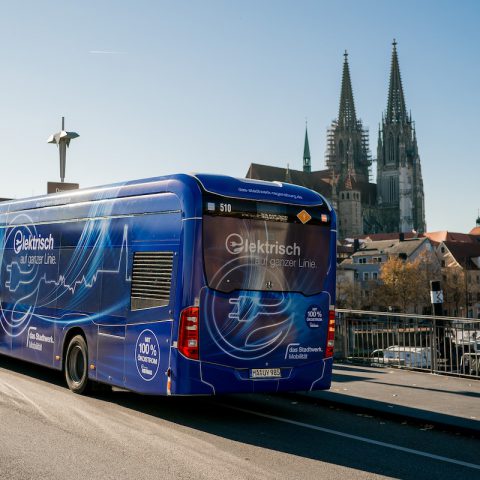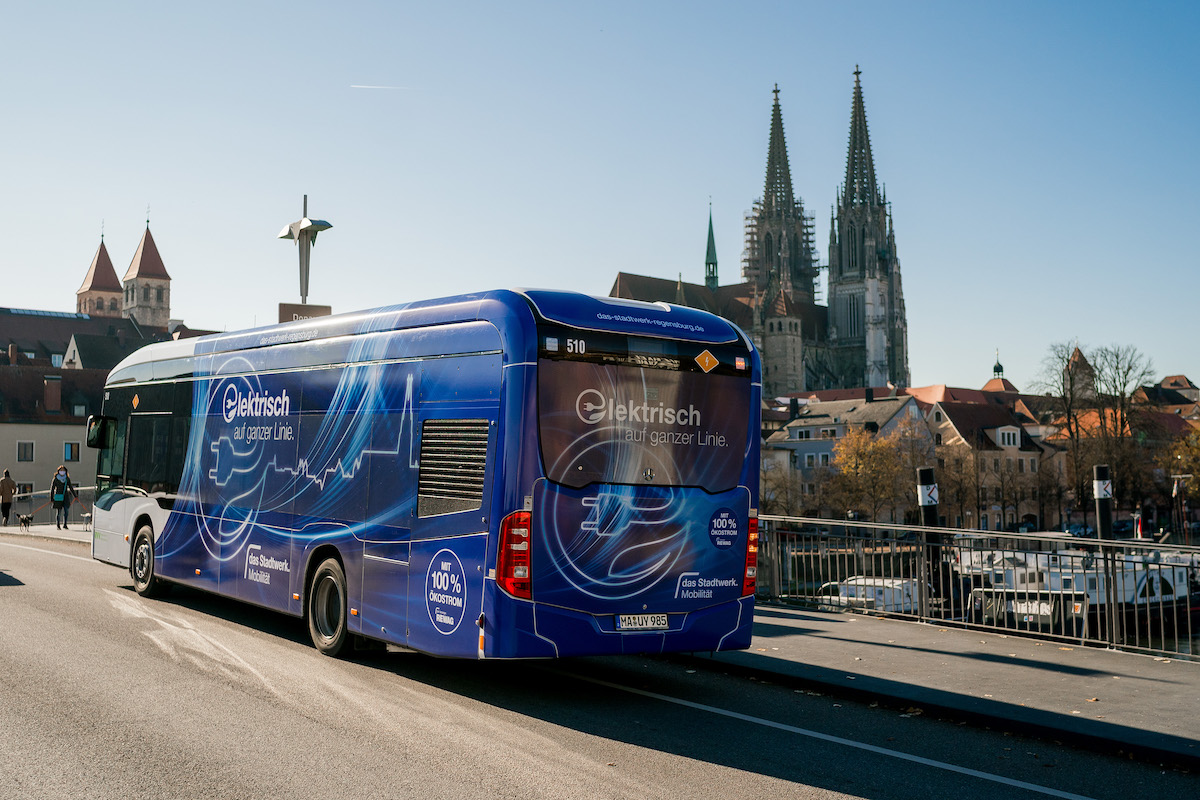Regensburg bus depot gets Siemens technology for charging 22 e-buses
Bus depot in Regensburg will be equipped with charging stations from Siemens Smart Infrastructures. The German group has received an order from the Regensburg transport authority Stadtwerk Regensburg.Mobilität GmbH to equip the bus depot in the Markomannenstrasse for electromobility. Siemens will supply the charging infrastructure as well as the power distribution technology. Operations are scheduled to […]

Bus depot in Regensburg will be equipped with charging stations from Siemens Smart Infrastructures. The German group has received an order from the Regensburg transport authority Stadtwerk Regensburg.Mobilität GmbH to equip the bus depot in the Markomannenstrasse for electromobility.
Siemens will supply the charging infrastructure as well as the power distribution technology. Operations are scheduled to start in 2021. Electric buses were first introduced in the city center of Regensburg in 2017.

Siemens provides e-bus infrastructures for Regensburg bus depot
The Sicharge UC 200 charging stations will supply 22 new electric buses at 23 parking spaces with a charging power of 150 kW each, Siemens points out. Charging will take place either overnight or during other breaks in operations using charging cables and connectors. 16 of the 23 parking spaces will have a special cable reel that automatically rewinds after charging is complete, leaving the drive-through lanes open. The vehicles will be powered with locally and renewably generated green electricity from REWAG, the energy provider in the Regensburg group of companies.
To connect the depot to the public power grid and to distribute electricity in the building, Siemens is also installing transformers and a Sivacon S8 low-voltage switchboard.
Trunking system in Regensburg electric bus depot
The individual charging stations in the depot will then by supplied with power via a Sivacon 8PS busbar trunking system. What makes this form of power distribution unique are the special connectors that easily adapt the busbar trunking system to the special characteristics of the existing building.
According to Siemens, this solution is more flexible than cables, easier and faster to install. Additional loads can be added via tap-off units as needed. When planning the power distribution system, a digital twin of the busbar trunking system is created by using digital planning tools. A future modular expansion of the system can thereby be simulated and included in the planning process already today. This enables forward-looking and economic planning as well as efficient implementation.
E-bus charging infrastructures integrated in the bus depot
“In order to continue to make transport in Regensburg more environmentally friendly and climate-neutral, we want to further advance the electrification of the local public transport,” said Manfred Koller, Managing Director at das Stadtwerk.Regensburg. “It is important for us to integrate the new charging infrastructure into the existing bus depot easily and economically. In addition, we need to be able to add more charging options in future. We decided to go with Siemens because of their easy-to-expand charging infrastructure as well as their busbar trunking system for power distribution as an alternative to complex wiring.”
“This project demonstrates yet again the importance of integrating new charging infrastructure into existing structures. Many cities are investing in sustainable bus transport, but the retrofit has to be as economical as possible. For this reason, converting existing bus depots to eBus operations must be easy and cost-efficient,” said Birgit Dargel, Head of Future Grids at Siemens Smart Infrastructure.








